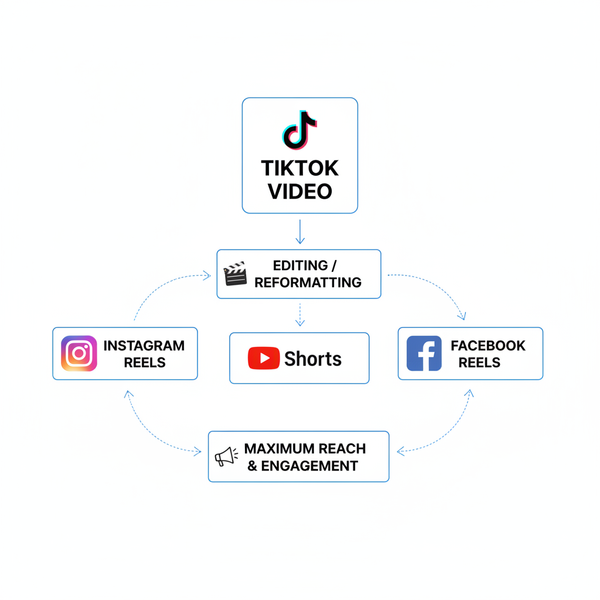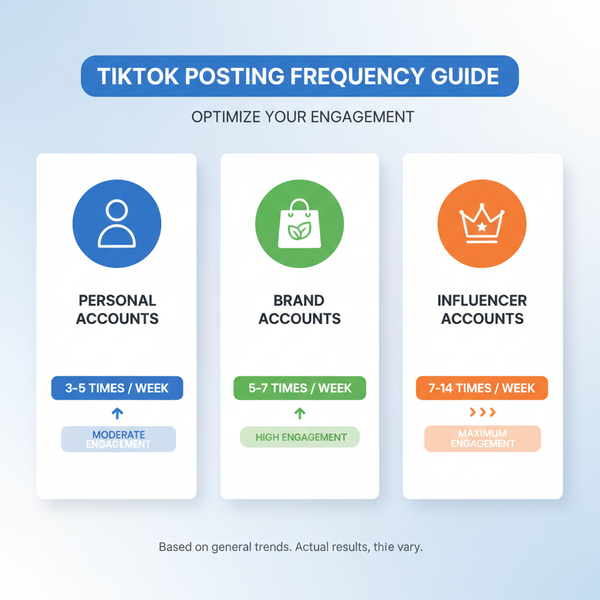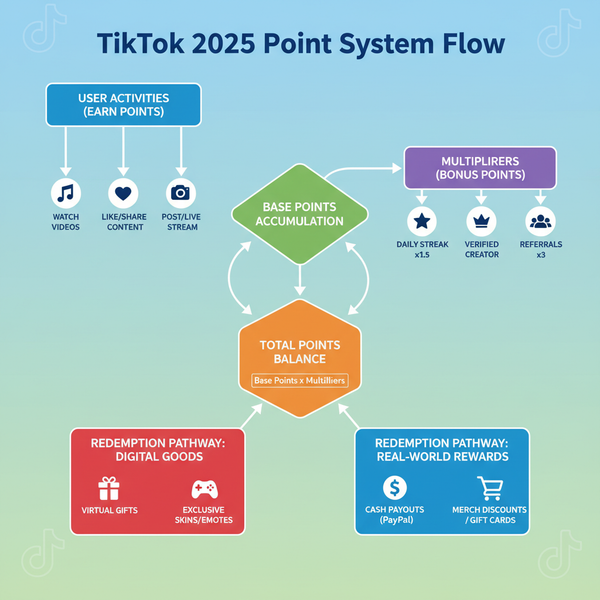Tagging on Social Media: Best Practices for Reach and Engage
Learn effective social media tagging techniques using mentions, hashtags, and geotags to boost reach, discoverability, and authentic engagement.
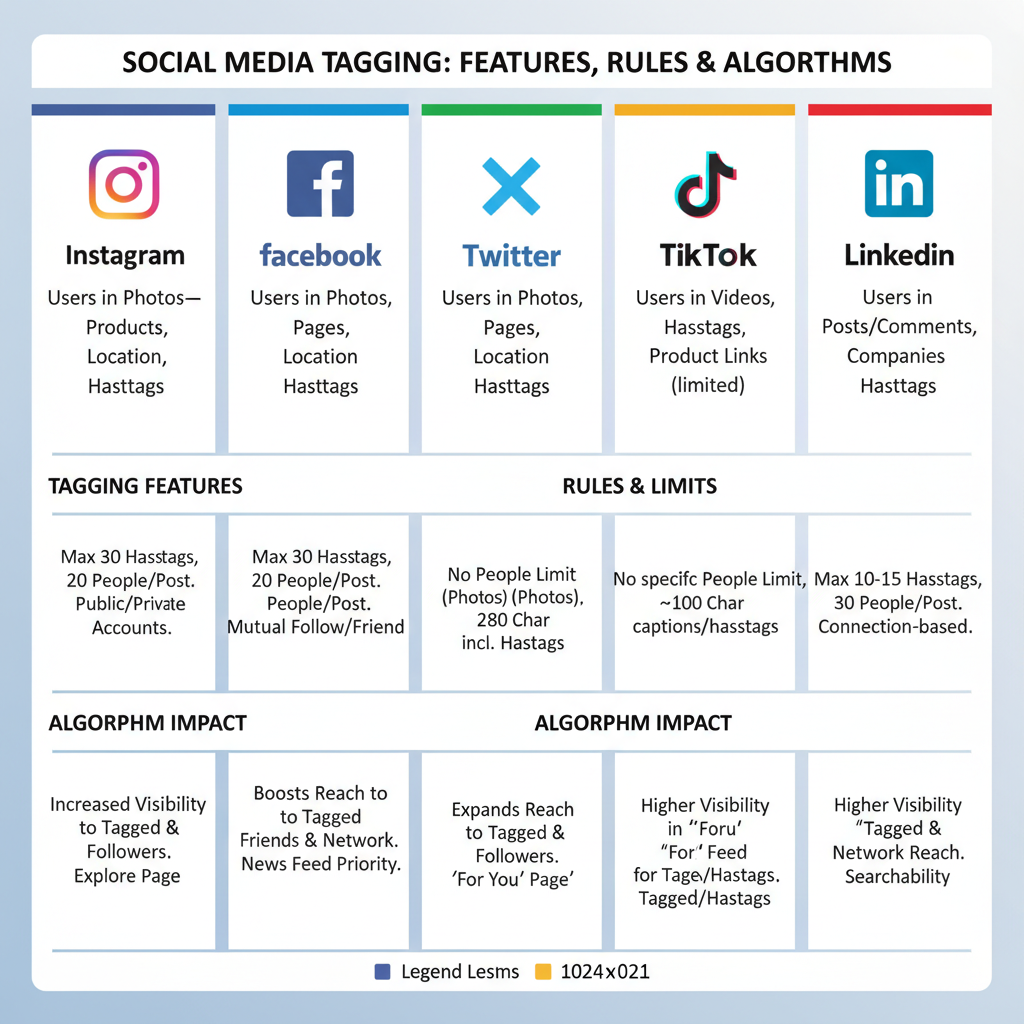
Tagging on Social Media: Best Practices for Reach and Engagement
Tagging on social media is a powerful tool for boosting your online presence. By strategically using mentions, hashtags, and geotags, you can connect with new audiences, improve discoverability, and foster deeper engagement. This guide covers how to tag effectively on major platforms, best practices to follow, and how to avoid common mistakes—helping you maximize reach and engagement while maintaining authenticity.

---
Understanding What Tagging Means Across Platforms
Tagging on social media can refer to several different actions, each with its own purpose and behavior:
- Mentions (@ Tags): Linking to a specific user or account within your post or comment using their handle.
- Hashtags (# Tags): Adding searchable keywords preceded by the hash symbol to group your content with similar topics.
- Geotags (Location Tags): Pinpointing a physical location related to your post.
Each type of tag functions differently across platforms. Understanding these nuances lets you create tagging strategies that fit your goals and chosen channels.
---
Platform-Specific Tagging Rules and Algorithms
Every social media platform features unique tagging capabilities and rules. Here’s a breakdown of the most popular channels:
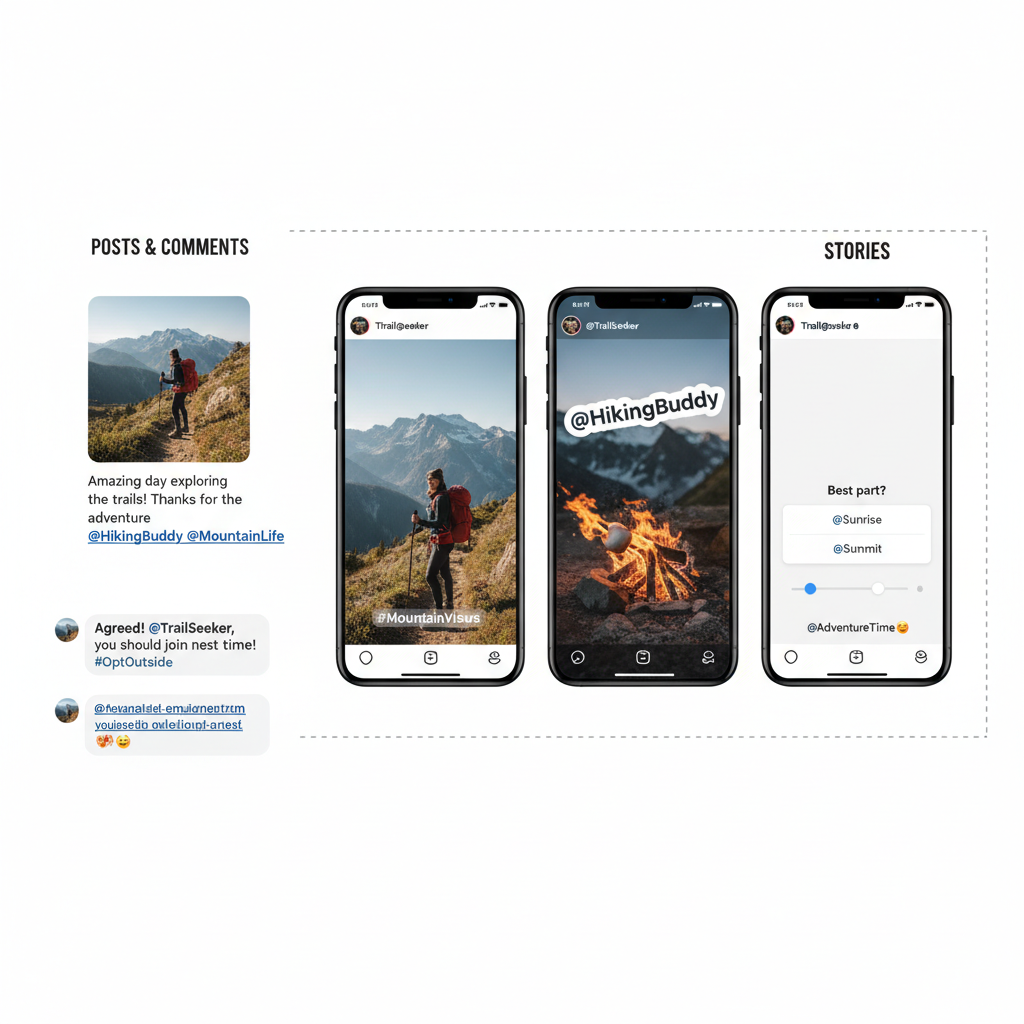
| Platform | Tagging Features | Algorithm Insights |
|---|---|---|
| @mentions, hashtags, geotags | Hashtags group posts; @mentions notify users; geotags boost location-based discovery | |
| @mentions, hashtags, page tags | Mentions extend reach to friends/followers of tagged accounts; hashtags less impactful here | |
| Twitter/X | @mentions, hashtags, trending tags | Hashtags dominate trending content; mentions spark conversations and engagement |
| TikTok | @mentions, hashtags, challenges | Hashtags tie into popular challenges/trends; mentions alert and involve other users |
| @mentions, hashtags, company tags | Mentions amplify network visibility; hashtags organize professional content |
---
Identifying the Right People, Brands, and Locations to Tag
Random or excessive tagging rarely produces good results. For maximum relevance:
- Collaborators – Tag partners, co-creators, or individuals featured in your content.
- Brands – Tag brands you mention or feature, ensuring natural alignment.
- Locations – Geotag events, store openings, or notable places linked to the post.
- Niche Influencers – Tag influencers with overlapping audiences to maximize mutual benefit.
---
Best Practices for Tagging in Different Content Formats
In Posts
- Integrate tags naturally within captions.
- Include hashtags that match your topic or themes.
- Tag only accounts directly connected to the post content.
In Comments
- Use @mentions to reply or draw relevant accounts to your content.
- Comment mentions can reignite visibility of older posts.
In Stories
- Use sticker tags for easy tap-through engagement.
- Add location stickers for event promotion or local reach.
In Videos
- Reference tagged accounts verbally or visually.
- Include hashtags in descriptions for broader searchability.
---
How Tagging Drives Visibility, Discoverability, and Trust
When done well, tagging enhances:
- Visibility – Posts reach followers of tagged accounts.
- Discoverability – Hashtags and geotags make posts easier to find.
- Audience Trust – Thoughtful tagging signals authenticity and credibility.
Irrelevant or excessive tagging, however, can harm perception and lead to reduced trust or engagement.
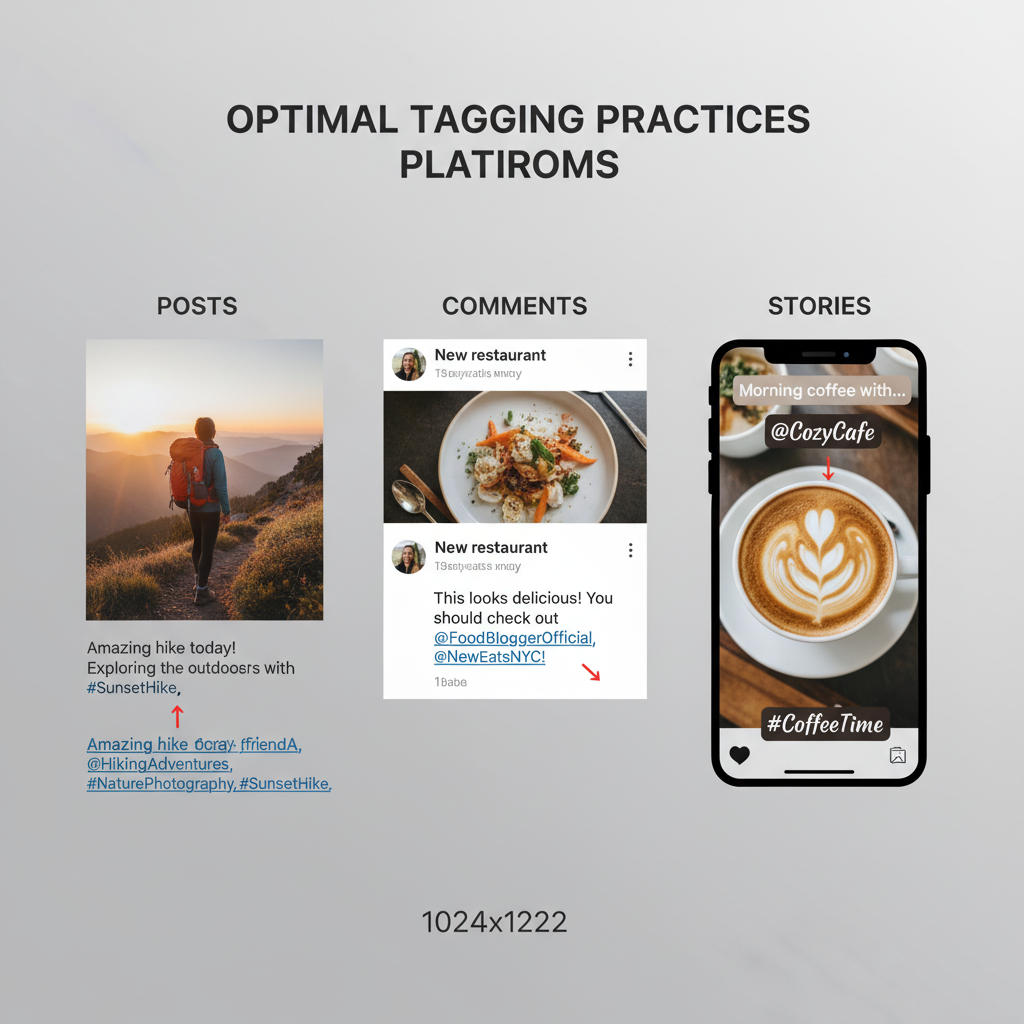
---
Avoid Over-Tagging and Spammy Behavior
Over-tagging can negatively impact both human perception and algorithmic ranking:
- Platforms may flag excessive tagging as spam.
- Too many tags weakens relevance and engagement quality.
- Users might mute or unfollow accounts that misuse tagging.
Aim to tag only when it genuinely adds value for the audience.
---
Using Hashtags Strategically Alongside Mentions
Hashtags and mentions often work best in combination:
- Select specific hashtags that target a niche audience.
- Blend branded hashtags with trending topics to balance reach and identity.
- Maintain readability—distribute hashtags between captions and comments.
---
Etiquette and Legal Considerations for Tagging
Tagging involves more than just marketing—it requires respect and compliance:
- Permissions – Obtain consent before tagging individuals, especially in sensitive contexts.
- Copyright – Avoid tagging in relation to unauthorized content.
- Brand Guidelines – Follow company guidelines when tagging brands in promotional posts.
---
Tracking the Performance of Tagged Content
Assessing your tagging strategy’s impact is crucial:
- Use built-in analytics (Instagram Insights, Facebook Page Insights).
- Track likes, comments, shares, and click-through rates.
- Compare reach and engagement between tagged and untagged posts.
---
Real-World Examples of Effective Tagging
Example: Small Business on Instagram
A local cafe tagged food bloggers and added a geotag. The post tripled its usual audience and earned coverage from local lifestyle accounts.
Example: Creator on TikTok
By joining a trending challenge and tagging collaborators, a creator doubled followers in just one week.
Example: Professional Networking on LinkedIn
A consultant tagged clients (with permission) in case study posts, leading to increased engagement across related professional sectors.
---
Summary & Next Steps
Strategic social media tagging can amplify reach, improve discoverability, and strengthen connections with your community. By learning platform-specific rules, tagging relevant accounts or locations, combining hashtags effectively, respecting etiquette, and monitoring results, you transform tags from casual mentions into growth-driving tools.
Call to Action: Start experimenting with purposeful tagging today to engage more audiences, grow your network, and make your social content work harder.


